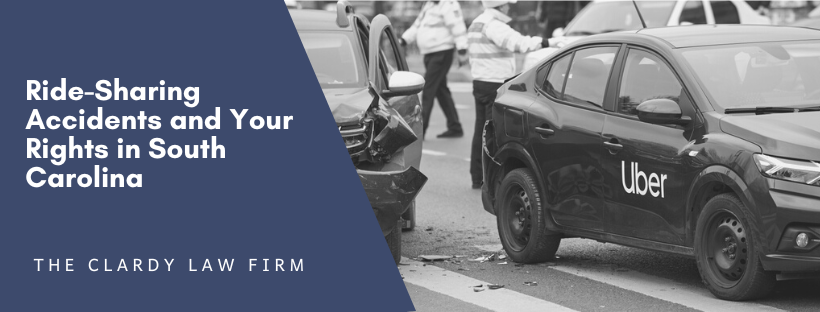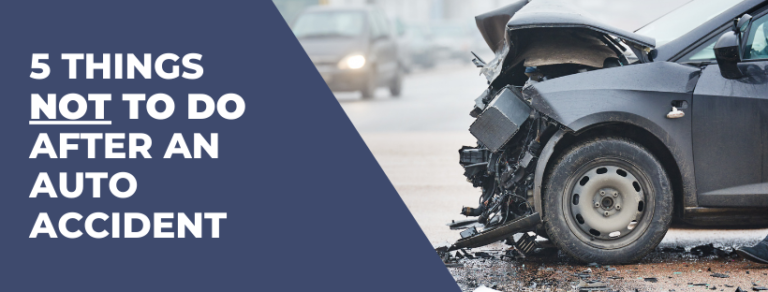In recent years, ride-sharing services such as Uber and Lyft have revolutionized how we travel, providing a convenient and efficient alternative to traditional transportation methods. The ride-sharing industry is anticipated to expand, with the market size increasing from $61.3 billion in 2018 to $218 billion by 2025. Several factors contribute to the growth of ride-share companies, including increasing demand for convenience, a decrease in car ownership, and the rising prevalence of smartphone usage, among other factors.
While these services offer numerous advantages, they also come with a unique set of risks, particularly when it comes to accidents.
This article will shed light on the legal complexities surrounding ride-sharing accidents and how individuals can navigate the aftermath, specifically focusing on the legal landscape in South Carolina.
The Rise of Ride-Sharing Services
The exponential growth of ride-sharing services has transformed the transportation industry, offering users unparalleled convenience at the touch of a button. Whether it’s a daily commute, a night out on the town, or a ride to the airport, ride-sharing has become an integral part of modern life. However, with this increased reliance on ride-sharing comes an inherent risk of accidents, ranging from minor fender-benders to more severe collisions.
The Unique Legal Challenges of Ride-Share Accidents
Unlike traditional car accidents, ride-share accidents introduce a layer of complexity regarding liability and insurance coverage. Determining responsibility in these cases can be intricate, involving not only the driver but also the ride-sharing company’s policies and insurance provisions. As a result, individuals involved in ride-share accidents may find themselves navigating a legal landscape that requires a nuanced understanding of both general traffic laws and the specific regulations governing ride-sharing in their state.
Common Causes of Ride-Share Accidents
Distracted Driving
The prevalence of smartphones and in-app navigation systems poses a significant risk for ride-sharing drivers. Distractions — answering calls, responding to messages, or navigating through the ride-sharing app — can lead to inattention on the road and an increased likelihood of accidents.
Fatigue and Long Hours
Many ride-share drivers work extended hours to meet high demand, often resulting in fatigue. Driver exhaustion can compromise reaction times and decision-making abilities, contributing to a higher risk of accidents, especially during late-night or early-morning shifts.
Inadequate Driver Training
While ride-sharing platforms generally have guidelines for driver onboarding, the training process may vary in rigor. Insufficient training can lead to drivers lacking the necessary skills to navigate complex traffic situations, increasing the chances of accidents.
Related: Dangerous Driving Habits In South Carolina
Ride-Share Driver Requirements
Age requirement: Drivers must be at least 21 years old.
Driving experience: Drivers need a minimum of three years of driving experience. For those who recently relocated from another state, verification of their driving history may be necessary.
In-state car insurance: Drivers are required to have car insurance in their name from the state in which they operate.
In-state car registration: Drivers must possess car registration from the state where they operate.
In-state driver’s license: A valid driver’s license issued by the state of operation is mandatory for drivers.
Social Security number: Drivers must provide a Social Security number to facilitate the completion of the background check.
Clean driving record: A clean driving record is a prerequisite for becoming an Uber driver.
Background check: Successful completion of a background check is mandatory. The check encompasses the last seven years and ensures that the driver has not been involved in:
- DUI or drug-related offenses
- Incidents of driving without insurance or license
- Fatal accidents
- Reckless driving
- Criminal history.
Ride-Share Vehicle Requirements
Age requirement: The vehicle should be 15 years old or newer, with specific requirements varying across different cities.
Door configuration: A four-door vehicle is essential for ride-sharing.
Condition: The vehicle must be in good condition and free from cosmetic damage.
Commercial branding: The vehicle should not display any commercial branding.
Uber/Lyft decal: An Uber/Lyft decal must be visibly displayed at all times while operating as a ride-share vehicle.
Vehicle inspection: A mandatory vehicle inspection is required within 30 days of taking the first trip. This ensures the vehicle meets the necessary safety and operational standards for ride-sharing.
The Unique Challenges of Proving Liability in Ride-Share Accidents
Ride-share accidents often present challenges in determining liability due to the dynamic nature of these services. Unlike traditional accidents involving two private parties, ride-share accidents may involve multiple stakeholders, including the driver, the ride-sharing company, and even other third parties.
Establishing a clear chain of responsibility requires a thorough investigation, including analysis of driver behavior, adherence to company policies, and any potential technical glitches within the ride-sharing app. This complexity underscores the need for legal knowlege when pursuing compensation or holding negligent parties accountable.
Legal Responsibilities of Ride-Share Companies
Overview of Uber and Lyft’s Duty of Care to Passengers
Ride-sharing companies like Uber and Lyft owe a duty of care to their passengers. This duty includes ensuring that drivers are qualified, adequately trained, and that the vehicles used meet safety standards. Passengers trust these platforms to prioritize their safety, making it crucial for ride-share companies to implement and enforce policies that contribute to a secure transportation environment.
Analysis of Ride-Share Company Insurance Policies
Coverage Limits and Exclusions
Ride-sharing companies typically provide insurance coverage for their drivers, but the extent of coverage can vary depending on the driver’s status at the time of the accident. Understanding the coverage limits and any exclusions in the insurance policies is essential for individuals involved in ride-share accidents.
Differences Between Driver and Passenger Coverage
Ride-share drivers may have different levels of coverage when they are actively transporting passengers compared to when they are waiting for a ride request. Examining the nuances of coverage during different phases of the ride can significantly impact the legal options available to accident victims.
Lyft has specific requirements for their drivers in South Carolina, and Uber provides insurance coverage details for their drivers and any rules for the city where their drivers work.
Understanding the intricacies of these legal responsibilities and insurance provisions is crucial for anyone navigating the aftermath of a ride-share accident.
South Carolina Laws and Regulations
Overview of South Carolina’s Legal Framework for Ride-Sharing Services
South Carolina, like many states, has implemented specific regulations governing the operation of ride-sharing services within its borders. These regulations aim to strike a balance between ensuring the convenience of ride-sharing and safeguarding the safety of passengers and other road users.
South Carolina operates under an “at-fault” insurance system, meaning that if a driver is found to be negligent and causes an accident resulting in injuries, the responsible party is accountable for the damages incurred by the injured party. In such cases, individuals harmed in an accident may initiate a legal action, such as a South Carolina Uber accident suit, to seek compensation for their injuries, with the fault being a pivotal factor in these legal proceedings.
Uber drivers in South Carolina are required to have car insurance that covers both their passengers and other drivers involved in an accident. Moreover, Uber vehicles in the state are also protected by insurance policies maintained by Uber. It’s essential for drivers to maintain their personal insurance coverage for instances when they are not actively driving for hire.
Uber and Lyft drivers are typically classified as independent contractors rather than employees. This classification holds significance in determining liability for injuries and damages resulting from an accident. While Uber and Lyft provide $1 million in liability insurance, the applicability of this coverage may vary depending on the circumstances of the accident.
Relevant Traffic Laws and Regulations in the Context of Ride-Sharing Accidents
Traffic Laws Pertaining to Ride-Share Drivers
South Carolina’s traffic laws apply to all drivers, including those engaged in ride-sharing. Understanding the state’s regulations on speeding, traffic signals, and other common traffic infractions is crucial for determining liability in ride-share accidents.
Insurance Requirements for Ride-Share Drivers
Uber and Lyft drivers operating in South Carolina are mandated to fulfill the state’s minimum insurance requirements, encompassing:
- $25,000 for bodily injury per person
- $50,000 for bodily injury per accident
- $25,000 for property damage per accident.
Distinct insurance liability regulations come into play in various scenarios.
Given that an Uber driver operates their personal vehicle, it is imperative to ascertain their work status at the time of the accident.
- If the driver is offline, indicating that the app is turned off, they are not actively working, and their personal auto insurance becomes the primary coverage.
- When the driver is logged into the app but not currently involved in a prearranged ride, the coverage requirements include primary auto liability of at least $50,000 for death and bodily injury per person, $150,000 for death and bodily injury per incident, and $25,000 for property damage. Although Uber provides insurance as an option, the driver’s personal insurance takes precedence as the primary coverage during this phase.
- Once the driver has been matched with a passenger and is en route to pick them up, the ride-sharing company’s auto insurance typically takes effect. Some personal ride-share insurance policies may also extend coverage during this period.
- When a driver has a passenger in their vehicle, Uber’s $1 million liability insurance comes into play, providing additional coverage.
The interplay of these insurance dynamics underscores the importance of understanding the specific circumstances surrounding a ride-share accident.
Comparative Fault and Its Impact on Compensation
South Carolina follows a comparative fault system, which means that if multiple parties share responsibility for an accident, their compensation may be adjusted accordingly. Understanding how comparative fault applies to ride-share accidents is essential for individuals seeking compensation and for legal professionals building a case.
If you, as an Uber passenger, are involved in an accident caused by another motorist, the primary source for compensation is the personal auto insurance policy of the at-fault motorist. Should the responsible driver be uninsured or lack sufficient insurance to cover your damages, Uber’s uninsured/underinsured policy will come into play to provide the necessary coverage.
By exploring these aspects of South Carolina’s legal landscape, we aim to provide a comprehensive understanding of the legal context in which ride-share accidents occur.
Related: Who Is Responsible in a Multi-Car Accident?
Seeking Compensation after a Ride-Share Accident in South Carolina
In the aftermath of a ride-share accident in South Carolina, you have the opportunity to pursue compensation for both economic and non-economic damages. Economic damages encompass payments for expenses incurred due to your injuries.
Commonly claimed expenses for the recovery of economic damages include:
Medical expenses:
- Emergency treatment costs, whether at the scene or in the emergency department
- Ambulance or air transport to the hospital
- Diagnostic testing expenses
- Surgical or physician services fees
- Prescription medication costs
- Hospitalization charges
- Physical therapy and rehabilitation expenses
- Compensable assistive devices such as prosthetics, crutches, or wheelchairs.
Lost wages:
- Compensation for income lost due to an inability to work or the need to miss work for injury-related medical appointments.
Loss of future earning capacity:
- Compensation for a potential reduction in earning capacity if the injury leads to a disability, making you unable to work or earn at your pre-accident capacity.
Non-economic damages, on the other hand, offer compensation for the intangible impacts on your quality of life resulting from the injury. Some common examples of impacts claimed in South Carolina Uber or Lyft accident cases include:
- Physical pain and suffering
- Emotional distress
- Loss of the enjoyment of life.
Challenges in Ride-Share Accident Claims
Issues with Insurance Claims and Coverage Denial
Navigating Complex Insurance Policies
Ride-share companies typically have insurance policies that cover their drivers, but understanding the terms, conditions, and limitations can be challenging. Individuals may face obstacles in securing fair compensation if they are not fully aware of the intricacies of these policies.
Coverage Denial
Insurance claims, especially in the aftermath of a ride-share accident, can be met with denial or delays. Ride-share companies and their insurers may dispute liability, leading to difficulties in obtaining the compensation needed for medical expenses, vehicle repairs, and other damages.
The Role of Arbitration in Resolving Disputes
Mandatory Arbitration Clauses
Ride-share companies often include mandatory arbitration clauses in their terms of service agreements. These clauses can limit an individual’s ability to pursue legal action in a traditional court setting, instead requiring disputes to be resolved through arbitration.
Impact on Legal Recourse
Mandatory arbitration can impact the legal recourse available to individuals involved in ride-share accidents, potentially limiting their ability to seek fair compensation through the court system.
The Potential Impact of Waivers and Disclaimers on Legal Recourse
Waivers and Disclaimers in Ride-Share Agreements
Ride-share companies may include waivers and disclaimers in their user agreements, aiming to limit their liability in the event of an accident. Understanding the enforceability and implications of these clauses is crucial for individuals seeking legal recourse.
Challenges to Enforceability
Legal challenges may arise concerning the enforceability of waivers and disclaimers, and an experienced car accident lawyer can assess the validity of these contractual provisions within the context of South Carolina law.
Seeking Legal Representation
The Importance of Hiring a Car Accident Lawyer
Knowledge
Ride-share accidents bring unique legal challenges. Hiring a car accident lawyer ensures that you have an advocate familiar with the nuances of these situations. They can leverage their knowledge to build a strong case on your behalf.
Understanding of Ride-Share Company Policies
A lawyer well-versed in auto accident cases understands the policies and procedures of companies like Uber and Lyft. This knowledge is crucial for navigating through the complexities of these cases, including insurance coverage details, liability assessments, and potential disputes.
Initial Consultations and Case Evaluations
Assessment of Case Viability
During an initial consultation, a car accident lawyer will assess the viability of your case. They will review the details of the ride-share accident, examine available evidence, and provide an informed opinion on the strength of your potential claim.
Explanation of Legal Options
Your lawyer will explain the legal options available to you, considering the specific circumstances of the accident. This may include pursuing compensation through insurance claims, negotiating with the ride-share company, or taking legal action against negligent parties.
Legal Representation Throughout the Process
Negotiation with Insurance Companies
A skilled attorney can negotiate with insurance companies on your behalf, aiming to secure fair compensation for medical expenses, property damage, lost wages, and other damages resulting from the accident.
Litigation If Necessary
If negotiations prove unsuccessful or there are disputes regarding liability and compensation, your lawyer can guide you through filing a lawsuit. They will represent your interests in court, presenting a compelling case to seek the compensation you deserve.
Given the multifaceted challenges presented by ride-share accidents, seeking legal representation is crucial. A qualified car accident lawyer in South Carolina can navigate these complexities and advocate for the rights of those impacted.
The Road Ahead
As ride-sharing continues to evolve, so too will the legal landscape surrounding accidents involving these services. Staying informed about state-specific regulations, understanding insurance policies, and having access to legal counsel are essential components of ensuring fair and just outcomes for those involved in ride-share accidents.
By staying informed and seeking appropriate legal guidance, individuals can better navigate the aftermath of ride-share accidents, protect their rights, and work towards securing the compensation they deserve.





